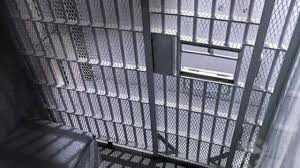SOUTHERN CAPE TVET COLLEGE CEO, HIS DEPUTY, AND BUSINESS OWNERS RELEASED ON BAIL FOLLOWING FRAUD CHARGES
The George Magistrates` Court has released on bail former Southern Cape TVET College CEO and principal, his deputy, and business owners, following their appearance on 16 counts of fraud totaling R24,1 million. The accused are CEO and principal Luvuyo Ngubelanga, his deputy Alisile Dyabaza, Prudence Dingiswayo, Patrick Mbebe, Sokhawulela Hire, and General Trading CC owned by Mbebe, Pieter Sam, Andreas Ngubeni, Inyameko Building Construction owned by Ngubeni, Nomathamsanqa Msizi, Tamaristos General Trading and Max n Mzo Projects both owned by Msizi, and Shadrack Njozela.
Ngubelanga was released on R10 000 bail, Dyabaza on R3 000, Dingiswayo on R2 000, Mbebe on R5 000, Sam on R5 000, Ngubeni on R5 000, Msizi on R3 000 and Njozela on R3 000. Southern Cape TVET College comprises six campuses which are the George Campus (administrative campus), Beaufort West Campus, Bitou Campus in Plettenberg Bay, Hessequa Campus in Riversdale, Mossel Bay Campus, and Oudtshoorn Campus.
The State alleges that between 2010 and 2014, Ngubeni’s construction company, Inyameko Building Construction, was requested to submit 25 quotations for construction and related alterations across all South Cape College TVET Campuses. Ngubelanga, Dyabaza, Dingiswayo, Mbebe, and Sam, acting in common purpose, approved quotations submitted by the construction company, although there was no valid tax number, no construction industrial development board certificate, and no declarations form as supporting documents. The appointment of the construction company led to the exclusion of other competitors which was contrary to sections 1, 4, and 8 of the Procurement and Supply Chain Management.
The three sections of the Procurement and Supply Chain Management dictate that the institution must derive the best value for money from its purchasing activities; preserve fair trade relations with the suppliers following a system that is fair, equitable, and transparent, competitive, and cost-effective. Require the institution to establish, implement and maintain a procurement policy that is fair, equitable, transparent, competitive, and cost-effective.
Section 8 sets out a process of ordering facilities which includes that prices for goods and services must be obtained using a quotation, tendering process, and contracts or unsolicited bids. Only approved supplier databases and/or advertisements must be utilised. All tenders/quotations must be in writing and only the finance department situated at the central office will negotiate a possible price and contracts.
The state further alleges that the accused colluded using various forms of fraud and manipulation, to ensure that the 25 construction contracts were guaranteed for Inyameko Building Construction. Methods used included a cover quote which is the manipulation of the “three quote system” whereby other companies owned by other accused and suspects, acting in concert with and common purpose, deliberately and conveniently under-quoted to ensure that the contracts were awarded to Inyameko Building Construction. Cover quoting undermines procurement processes by corruptly eliminating competition, and by making artificially inflated prices appear competitive.
The state accuses Ngubelanga, and Dyabaza of pretending that the construction projects were urgent and approved them but failed to submit reasons for deviation to the institution’s council, as per Section 7.1.5 of the Procurement and Supply Chain Management. They failed to state the reason why Inyameko Building Construction was appointed or regarded as the preferred supplier as per section 14 of the Procurement and Supply Chain Management.
As a result, the accused acting in concert misrepresented to the Southern Cape TVET College and potential tenderers that a fair, equitable, transparent, competitive, and cost-effective process was adhered to during the process of appointing construction company for the 25 construction and related contracts. They knew that affording the company the 25 contracts, resulted in the actual prejudice of other potential service providers and suffered an actual loss in this regard. They were aware that the college did not receive the best value for money nor preserve fair trade relations with the other service providers. They failed to adhere to the principles and duties as required by the code of conduct for public officials read with the code of conduct of the institution at the time of sourcing and appointment of the company.
Also, Ngubeni and his company knew that the total payments of over R 24 million by the institution were not acquired fair, equitably, and transparently, let alone a competitive and cost-effective process as follows. They knew that accepting the favour or advantage from the accused was unlawful and intentional.
The court has transferred the case to the George Regional Court for the accused first appearance on 11 May 2023.






